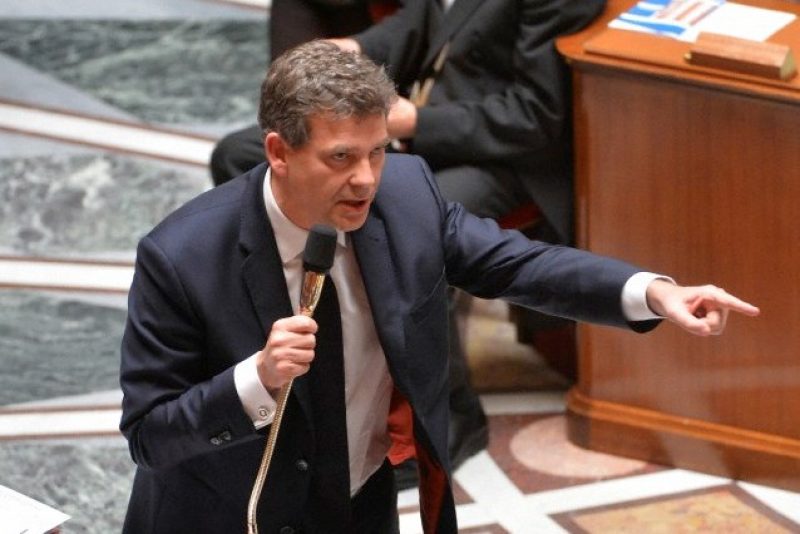Arnaud Montebourg barely lasted three months as Minister for the Economy in France – a case of the wrong policies for today’s Europe?
According to author and columnist Pascal Ordonneau, the person who wanted the head of Montebourg on a silver platter much more than Prime Minister Manuel Valls was German leader Angela Merkel.
Ordonneau, a banker for over 35 years, is a specialist on German affairs and is author of a new book due out next month entitled “Allemagne, l’empire retrouvé ou le modèle imaginaire” (Germany, resurgent empire or the imaginary model).
With Montebourg’s replacement, there appears to be a significant shift towards a New Left of sorts in French politics, as public opinion – backed up by worsening economic and unemployment data – appears to reject the current trajectory of national economic policy.
The traditional thinking of the Left in France seems to have been sacrificed to appease. But whom is being appeased, Ordonneau wonders: Brussels? the Germans? The French public? Manuel Valls?
The flamboyant Montebourg had been the knight in shining armour of the French economy for just under three months. Now he finds himself dumped on the scrap-heap by the Socialist party leaders, similarly to another Socialist hero-figure Jean-Marc Ayrault who was dispensed with earlier this year.
There is no doubt that the French Socialist party is tearing itself apart at the moment – caught between an ever-worsening reality and a desire to remain loyal to their traditional principals.
In the pages of Le Figaro yesterday, Ordonneau’s article reflects perhaps a growing feeling throughout Europe of being overruled by a great power. He wonders if we’re witnessing the end of one act or the beginning of another. In his analysis, he says that Montebourg, “the self-named prince of economic voluntarism, crashed into a defence wall: that of the triumphant economic model, of the policy of austerity, of resistance to inflationist tendencies, to policies of liberalisation of the labour market and of the abolition of the policies of redistribution.
“Montebourg attempted a heroic charge to break through what seems to be a new round of economic freezing! In the end, he fell – felled by the bloody comments of Angela Merkel, casting aside the appeals from the French President for more flexibility and more cooperation and finally for an economic resurgence by the European heavyweight.
“By playing along to such a tune, has our Prime Minister not been simply the representative of the foreign party?” asks Ordonneau. “That party who, in Brussels and in Berlin, makes decisions for Europe? That who decreed that what is good for the wise countries of the North – Germany and its clones – is good for the entire Union. Should we now believe that the policies of François Hollande and of his Prime Minister are calculated following the exigencies from ‘abroad’? Should we think that French policy consists essentially of ‘accommodating the rest’ and that the obsessional German fear of inflation should be shared by everyone, and with France primarily?
“Who cannot see that the attitude of Germany is becoming increasingly incomprehensible? Here and there, this incomprehension finds a few spokespersons, whether it’s Brussels via the European Commissioner for Employment Laszlo Andor, for example, or even Germany itself via the Federation of Industry. Those who openly doubt the economic policy of Berlin, have they nowhere left to hide? The charges of Montebourg were levelled against the ‘imaginary model’ of Germany. Just as the increasingly frequent criticisms from a good number of European countries are levelled against Brussels with regard to austerity policies!
“What can one say about this drastic political swerve? A bold manoeuvre of window-dressing without any real intent? It’s quite a job of work to do to turn the current economic situation in France around – it can’t be achieved by improvisation or in the short term. So did we have to sacrifice our knight in shining armour?”




 Tootlafrance is Ireland’s fresh new eyes on France, bringing you the latest news, exclusive celebrity interviews, political analysis, cultural events, property news and, of course, travel features written by top Irish journalists.
Tootlafrance is Ireland’s fresh new eyes on France, bringing you the latest news, exclusive celebrity interviews, political analysis, cultural events, property news and, of course, travel features written by top Irish journalists.